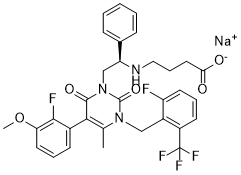Although several studies provided promising findings in the association of FoxOs gene with the aging process, due to the various risk factors and the complexity of CHD, the role of FoxOs on the pathogenesis of CHD has not been identified in our study Oxidative stress plays an important role in the process of atherosclerosis. The dysregulated oxidant and antioxidant balance brings about the alterations in redox status, and subsequently leads to VSMC proliferation, endothelial dysfunction, inflammatory response and lipid peroxidation. All these detrimental events result in vessel wall thickness and vascular remodeling which induce a susceptibility to CHD. However, mounting evidence supports that chronic inflammation plays a central role in the pathogenesis of CHD. Cytokines secreted by inflammatory cells could contribute to the initiation, development and rupture of atherosclerotic plaque. Therefore, the relative balance of these inflammatory processes will predict the development of CHD. Although CHD is age-associated vascular disease, the contribution of inflammatory cells and mediators in the pathogenesis of CHD should also be emphasized. One of the major biochemical pathways playing a role in the inflammatory process is the NF-kB signaling pathway. Using apoE2/2 mice, genetic suppression of NF-kB signaling led to a reduction in the size of atherosclerotic lesions. Interestingly, FoxOs have been reported to suppress NF-kB signaling, providing support for the possible vasculoprotective effects of FoxOs. However, we did not observe any association between FoxO1/ FoxO3 variants and CHD. It should be noteworthy that atherosclerosis results from a combination of endothelial, hematopoietic, T-cell and macrophage dysfunction. Thereby, the modulation is very complex. Besides FoxOs, a wide range of extracellular  immune stimuli, such as IL-1, IL-6, TNF-a, T-cell receptor and B-cell receptor, can mediate the regulation of NF-kB activity. Moreover, it has been reported that genetic polymorphisms/variations in expression of FoxO genes appear to correlate with human autoimmune disease susceptibility and or activity. Of note, the inflammation in CHD, with a special name of “AbMole Ascomycin metabolic inflammation”, has unique AbMole Alprostadil features compared to autoimmune diseases. The metabolic inflammation is mainly associated with overnutrition-induced metabolic derangements. May these explain the negative indications for our association study between FoxOs and CHD. FoxOs have been reported to play a major role in the transcriptional regulation of many proteins which are directly involved in metabolism. Thereby, we also analyzed whether any of the selected SNPs in FoxO1/FoxO3 is associated with gender, smoking, medical history of hypertension, diabetes mellitus, hyperlipidemia and MetS in our study population. But we did not observe any significant association. However, to rule out any association of FoxO1/FoxO3 with CHD, additional studies are required in different populations with different allele frequencies. In conclusion, we demonstrate that neither FoxO1 nor FoxO3 is associated with CHD in two geographically isolated Han Chinese populations. However, the number of participants in this study is relatively small, and the findings need to be cautious. A multi-center research needs to be carried out to further assess the association of FoxOs with CHD in more ethnic groups and in larger populations. Blood pressure variability is more closely associated with adverse outcomes in patients with or at risk of vascular disease than ‘usual’ BP and may play a causal role in the progression of organ damage and in triggering vascular events.
immune stimuli, such as IL-1, IL-6, TNF-a, T-cell receptor and B-cell receptor, can mediate the regulation of NF-kB activity. Moreover, it has been reported that genetic polymorphisms/variations in expression of FoxO genes appear to correlate with human autoimmune disease susceptibility and or activity. Of note, the inflammation in CHD, with a special name of “AbMole Ascomycin metabolic inflammation”, has unique AbMole Alprostadil features compared to autoimmune diseases. The metabolic inflammation is mainly associated with overnutrition-induced metabolic derangements. May these explain the negative indications for our association study between FoxOs and CHD. FoxOs have been reported to play a major role in the transcriptional regulation of many proteins which are directly involved in metabolism. Thereby, we also analyzed whether any of the selected SNPs in FoxO1/FoxO3 is associated with gender, smoking, medical history of hypertension, diabetes mellitus, hyperlipidemia and MetS in our study population. But we did not observe any significant association. However, to rule out any association of FoxO1/FoxO3 with CHD, additional studies are required in different populations with different allele frequencies. In conclusion, we demonstrate that neither FoxO1 nor FoxO3 is associated with CHD in two geographically isolated Han Chinese populations. However, the number of participants in this study is relatively small, and the findings need to be cautious. A multi-center research needs to be carried out to further assess the association of FoxOs with CHD in more ethnic groups and in larger populations. Blood pressure variability is more closely associated with adverse outcomes in patients with or at risk of vascular disease than ‘usual’ BP and may play a causal role in the progression of organ damage and in triggering vascular events.